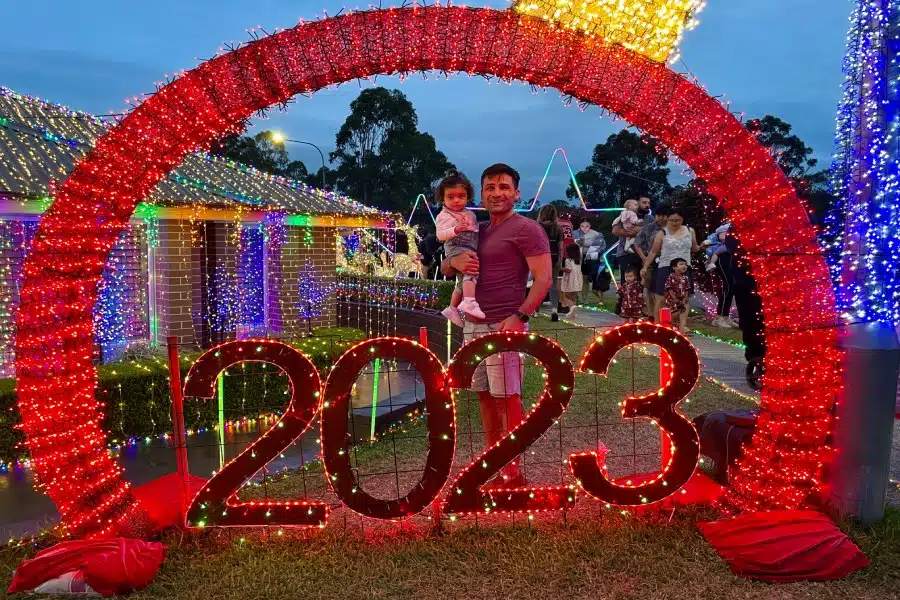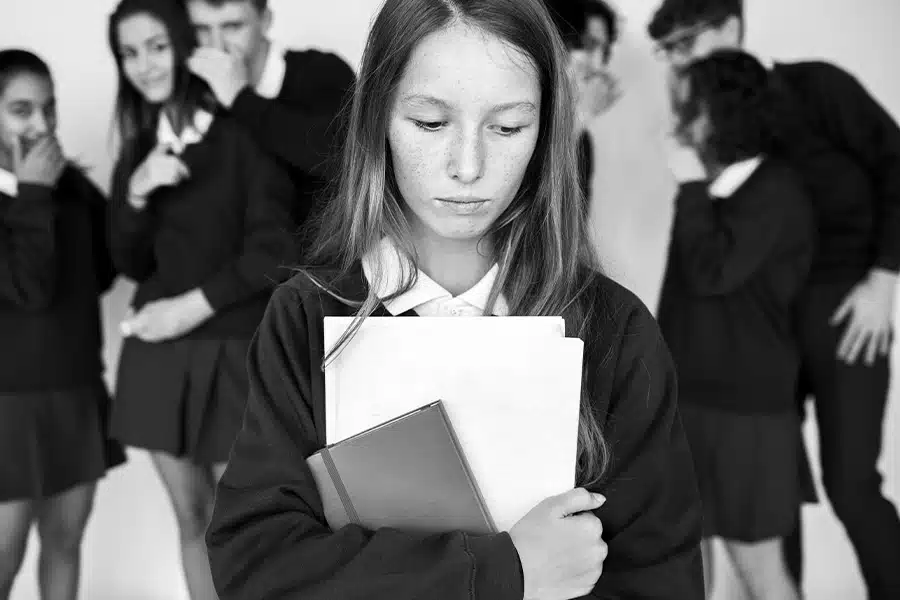CONNECTING WITH YOUNG PEOPLE

Gen Z, and the up and coming Generation Alpha, have so much to offer the world. Digital natives, they are bright, progressive, and genuinely concerned about key issues facing our world today.
In the recent Mission Australia Youth Survey 2022, young people identified the environment as one of the most important issues in Australia today, followed by equity and discrimination, and mental health. School, mental health and relationships were identified as their biggest personal challenges, notwithstanding the added pressures of social media.
It’s more important now than ever for the next generation to be empowered and equipped with the tools, mindsets and strategies to build resilience, and thrive amid life’s challenges and complexities.
In fact, they are in desperate need of leadership, guidance, mentorship, and most importantly, connection.
As educators and parents, this is where we come in.
I believe the role of an educator and parent is not just to teach, but to lead and facilitate the growth and development of potential. To do this, it’s not enough to have all the tips and strategies. Connection and care is the getaway to engagement and empowerment.
“Every kid is one caring adult from being a success story”
(Josh Shipp – Teen Expert)
Young people want to know that we CARE about them.
By showing that we care, rapport can be built. A safe space for dialogue can be created, and the opportunity for engagement and empowerment emerges. It’s pretty hard to equip and positively influence a young person if there isn’t a positive relationship already in place.
So, if you’re an educator or parent, what can you do to connect with and enable students to thrive?
Here are three suggestions:
1. BE ENGAGED
Feeling loved, valued, and appreciated is one of our core human needs. The easiest way to enable a child to experience this is through showing a genuine interest in their life, and by engaging with them.
For educators, finding out what your students like and dislike provides useful information to engage with them at any point in time. Knowing their story. For example, it could be knowing what sports they play and asking them how their game went over the weekend, or how they feel about an up and coming play. Keeping it real and on a human level is the fastest way to awaken the positive emotions necessary to support their wellbeing.
For parents, actions speak louder than words and promises to children. As a new dad to 5 month old Princess Annabella, I’m reminded that love is spelt T.I.M.E. I can tell my daughter I love her (which I do a gazillion times), but the reactions I get when I’m spending quality time with her are something else. She feels valued. It was only a few weeks ago when I happened to have her next to me in the pram while working from home. When I started typing away on the laptop, she started crying. The moment I stopped and turned to her, she also stopped and smiled. To make sure I was on to something, I did it again, and the same thing happened.
This might be a little different to engaging with a teenager, but the idea remains the same. Spending quality time, such as sharing in activities your child likes, and giving more positive attention than criticism will ensure your child remains feeling loved and secure, which can powerfully counteract the stressors on the rollercoaster adolescent journey.
2. BE EQUIPPED
While there are people that have the innate ability to easily connect with young people, it’s far from easy for most – especially when dealing with teenagers. Why? Because it requires skill, and skill is something that is learned.
Sometimes, all you have is a few minutes to connect with someone to make a real difference, so it’s handy to have a toolbox of skills and strategies at your disposal.
Several years ago, I delivered my Thriving Wellbeing empower hour to a Year 9 cohort. Afterwards, one of the students approached me and shared her struggles with self confidence. She had ENZO (the emotional monkey) on her back.
By applying some of the skills I am about to share, such as asking open-ended questions and active listening, I was able to connect with her because she felt heard and understood, and valued and cared for. At the same time, I used my influence to shift her attitudes and perspective of herself and reconnect her (by asking open-ended questions) to the core of who she was, her awesomeness and her potential. She walked away from the interaction feeling empowered and confident, and not discouraged and confused as she walked into it.
“Listen with ears of tolerance. See through the eyes of compassion. Speak with the language of love”
(Jalaludin Rumi)
Here is short list of essentials needed to empower and equip young people, foster intimacy, instill confidence and clarity, and at times kill bad blood, negativity and doubt in relationships:
- Show genuine interest (first point)
- Asking open-ended questions
- Listening – actively and empathetically – without judgment
- Give validation
- Provide reassurance
- Embody a high level of emotional intelligence
- Suggest, not tell
- Coach, not micro-manage
- Avoid unsolicited advice
- Empower responsibility and accountability
- Instill hope
How often are you consciously putting the above skills into practice?
I’ve found that while attending courses and reading books helps with the upskilling process, the best way to get better at them is to practice them often so they become hardwired, and to learn from mistakes (because mistakes will be made – plenty). Young people can be our greatest teachers here.
3. BE EMPOWERING
When I was struggling during high school, several teachers wrote me off and labeled me as a student with ‘no hope’, betting I wouldn’t make it past Year 10. I ended up finishing Year 12 and was included in the HSC merit listing for outstanding academic results. Needless to say, while hard work and determination played a big part, it was the care and attention of not only my parents, but Mr Walker. Mr Walker started teaching in the year I made the turnaround. We had no history, starting with a blank canvas, and took me from being a struggling and disengaged student to being a high performer by the time I signed off, defying the odds.
The moral of the story?
Every single student has issues and struggles, but also within them have seeds of abundant potential, and it is our responsibility (educators and parents) to believe in them and feed them with the optimism and empowerment that will unlock that potential. When this happens, the young person can feel ‘the love’, and watch them soar, like I did.
Here are a few suggestions to be empowering:
- Every now and then, run an attitude check to ensure you are not drifting towards a path of apathy, due to one reason or another. A commitment to connection requires consistency, amid the challenges.
- Challenge the young person and make them accountable, including setting strong enough goals that will make them stretch, but also realistic enough to not make them break.
- When they experience a setback, encourage self reflection so they can learn and grow, fostering personal responsibility
- Celebrate their successes, no matter how small.
By this point, you might be thinking ‘Who has time for that?’, especially if you’re an educator with a plethora of students to attend to. There are many opportunities within a school schedule to connect with students. It could be done at a formal level (e.g mentoring sessions), classroom level (e.g giving feedback) or at an informal/adhoc level (e.g. outdoor activity). Quality is more important than quantity, and making a deliberate decision to form the habit of connecting with one student a day will go a long way towards sowing the right seeds and creating positive ripples.
The same idea applies in parenting, and that is, to create the routine and habit of having daily doses of connection and quality time, and from this, we are more likely to reap what we sow, and that is, a thriving young person.
To conclude, you may have heard the saying in the commercial world “People do business (and hire) with people they know, like and trust.”
Well, when it comes to building resilience, potential and hope in young people, I believe that young people engage with and are inspired by people they know, they like and they trust. A commitment to connection will make this ever-so possible.
I’ll leave you with the inspiring words of Maya Angelou:
“I’ve learned that people will forget what you said, people will forget what you did, but people will never forget how you made them feel.”
(Maya Angelou)
For short empowering videos you can share with your child from time to time to hear positive messages from ‘an outsider’, check out my instagram page @danielmerza











